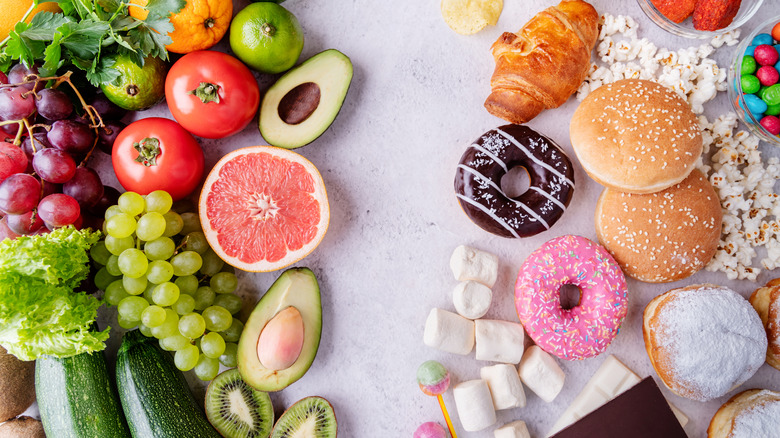The FDA Commissioner's Grim Report About American Eating Habits
For the U.S. Food and Drug Administration (FDA), the evidence has been piling up that the United States is facing a nutrition crisis, combining poor American eating habits with overly-processed, nutrient-deficient food. Our diet is loaded with added sugar, and Americans consume almost 50% more sodium than the daily recommended amount. At the same time, Americans are eating nowhere near the amount of healthy food they should be, with ABC News reporting that only 10% of Americans eat enough fruits and vegetables in their diets.
All of this poor nutrition is having a massive impact on our bodies and on the United States' healthcare system. According to NPR, there are almost 900 deaths each day from heart disease alone that are linked to poor diet, with processed food being connected to diabetes and other chronic illnesses. All this adds up to nearly $600 billion in healthcare spending each year on diet-related diseases, which, as the Washington Post notes, is far above the per-person rates in other developed nations. Despite being a problem for decades, it seems these troubling stats have caught the attention of the FDA.
The FDA is focused on improving American nutrition
The FDA's new focus on eating habits comes on the heels of a White House conference; the first such summit on food in over 50 years (via Food Dive). The agency will play a major part in implementing a new White House plan, which identifies the increasing prevalence of diabetes, obesity, and cancer as a major health crisis related to poor diet. The plan specifically calls out nutrition as a major focus, with intentions to not only improve access to nutritious foods for low-income Americans, but also fund education about healthy diets and incentivize the food industry to produce more healthy products and make them cheaper.
One early step being taken by the FDA is updating regulations for food labeling, including how companies use the term "healthy." Under the new rule, packages would not be allowed to state "healthy" if they have too much sodium, sugar, or saturated fat. Products must also contain a meaningful amount of nutritious ingredients like whole grains (via the FDA). It's a concrete, positive step that could bring up-to-date information about nutrition to American consumers. CNBC points out that many breakfast cereals which currently tout health claims, like Raisin Bran and Special K, may no longer be able to use the "healthy" label. While that may be frustrating to people who enjoy a big bowl of these cereals in the morning, it's a small sacrifice to make to improve health.

